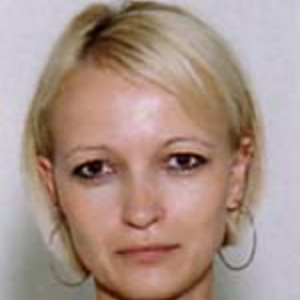Title : Optimization of rhodanine derivatives synthesis in deep eutectic solvents using different green techniques
Abstract:
Increasing need in drug consumption during last few decades, lead to the development of the pharmaceutical industry, thus increasing the synthesis of compounds with positive effects on human health. Mass production leads to the increased waste production and environmental pollution. Therefore, emphasis is placed on the green production methods and technologies. In organic synthesis, pollutants can be various solvents as well as catalysts. It is also important to reduce the energy consumption that can be achieved by using ultrasound and microwave irradiation. One of the green approaches in the synthesis is utilization of deep eutectic solvents (DESs), which can be used both as solvents and catalysts. DESs are composed of biodegradable and environmentally benign components. The advantages of the deep eutectic solvents are low toxicity, low inflammability, high availability, high recyclability, low volatility and low price. Among the many desired compounds that are synthesized today, rhodanine derivatives are compounds that have been increasingly synthesized due their significant biological activities such as antibacterial, antimalarial, herbicidal, antifungal, antitumor, insecticidal, antiviral, anti-inflammatory and cardiotonic activities. It has been reported that rhodanine derivatives can potentially be used in the treatment of obesity, cystic fibrosis, diabetes, Alzheimer’s disease, thrombocytopenia, cancer, sleep, mood and central nervous system disorders as well as chronic inflammation.
In this work Knoevenagel condensation of salicylaldehydes and rhodanine was conducted under different conditions. Initially, reaction was performed in 20 different DESs at 80 °C in order to find the suitable reaction media. Choline chloride based DESs are synthesized from choline chloride as a hydrogen bond acceptor and 20 different hydrogen bond donors (carboxylic acids, sugars, ureas or amides). The best reaction media was proven to be ChCl:acetamide DES, with the highest product yield of 96.3 %, followed by ChCl:malonic acid, ChCl:levulinic acid and 1,3-dimethylurea with the yields of 91.1 %, 85.8 % and 80.1 %, respectively. Reaction of rhodanine and salicylaldehyde was performed in four mentioned DESs under microwave and ultrasound irradiation, and with DES as a catalyst in order to find the best reaction conditions.
Audience take-away:
- In this presentation, positive aspects of rhodanine derivatives will be presented and their biological activities will be explained.
- Audience will learn about deep eutectic solvents properties and their proper use in the synthesis of organic compounds.
- The use of green synthesis techniques, as well as their advantages and disadvantages will be explained.




